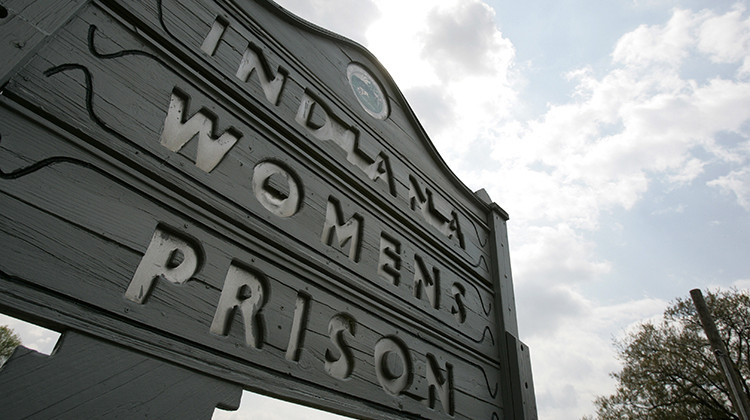LAUREN BECKER - WSBT-TV via AP
INDIANAPOLIS (AP) — The bond a mother forms with her baby after birth is something unexplainable and important for a child’s developing brain.
It’s so crucial, that Indiana lets some mothers who have lost all of their freedoms form this irreplaceable bond.
A program at the Indiana Women’s Prison is allowing mothers to raise their babies behind bars.
Most women in prison are mothers and some don’t even know they’re pregnant until they’re locked up. They’re forced to give up their babies just hours after delivery. But some women at the Indiana Women’s Prison don’t have to say “goodbye" to their child — but rather, “welcome home."
Like most three-month-olds, Heaven Rose loves playtime, and of course her mother.
“She’s very active, she’s a thumb-sucker clearly,” said Bailee Hoops, Heaven’s mother.
But Heaven doesn’t know she’s living inside the maximum security, Indiana Women’s Prison. Sharing a room with her mother, a convicted drug felon from La Porte County.
Bailee Hoops was seven months pregnant when she came in.
She says it was nerve wracking being surrounded by the prison’s general population while pregnant, and knowing she’d have to give her daughter up after delivery.
“It was scary. For my well-being and my baby too, it was scary at first just being pregnant.”
But Hoops soon learned she was accepted into the Wee Ones Nursery Program.
Leah Hession is the Nursery’s director.
“The Wee Ones Nursery Program was founded in April of 2008 as a mother-infant nursery inside the walls of the Indiana women’s prison,” said Hession.
The Nursery is in its own dormitory, separated from other prisoners.
To be accepted, you have to be a low-level offender and have less than 30 months to serve after your delivery date.
“An ideal candidate looks like a mother who is coming into her incarceration pregnant who is ready to learn parenting skills, learn more about child development and really better herself as both a mother and a woman here in prison.”
The mother and baby have their own room.
“But you can see she keeps things pretty neat and clean.”
There are beds for up to 33 mothers, making it the largest prison nursery in the nation. And the closets are stuffed full of clothes, food and diapers.
“It absolutely keeps the mothers focused, it helps to keep them on track and it really puts things into perspective,” said Hession.
Mothers go through prenatal and child development classes while completing substance abuse programs.
Danielle Long was arrested in South Bend on drug charges, not knowing she was four weeks pregnant.
“I’ve been a disappointment to my family,” said Long. “This is my third time in prison.”
But she says this time around is different. She has a new reason to stay out from behind bars – to be there for her daughter Elizabeth.
“I want her to grow up to be everything I could have been that I chose not to be-- smart, confident, I can’t wait to see her grow up.”
A recent study shows mothers in the Wee Ones Nursery program are about half as likely to be re-admitted within one year of release compared to mothers who are not in the program.
But is it fair to keep the babies locked up in prison? Hession says yes.
“There is something about the love of a child and a mother with her own child that just transforms these women.”
Research shows it doesn’t hinder a child’s development until they’re two-and-a-half years old. And that’s the longest a mother and child can live here.
It’s in this time that a mother’s love for her baby grows strong -- giving added incentive to remain free.
“To stay out, and to obtain sobriety and just to be a mother,” said Hoops.
Aside from receiving assistance while in prison, mothers also receive help after being released. A transitional team works on making sure they have healthcare.
They also set mothers up with resources to continue drug treatment, education, and help finding a job.
Program leaders want to see success, and research shows it’s doing just that.
 DONATE
DONATE








 Support WFYI. We can't do it without you.
Support WFYI. We can't do it without you.